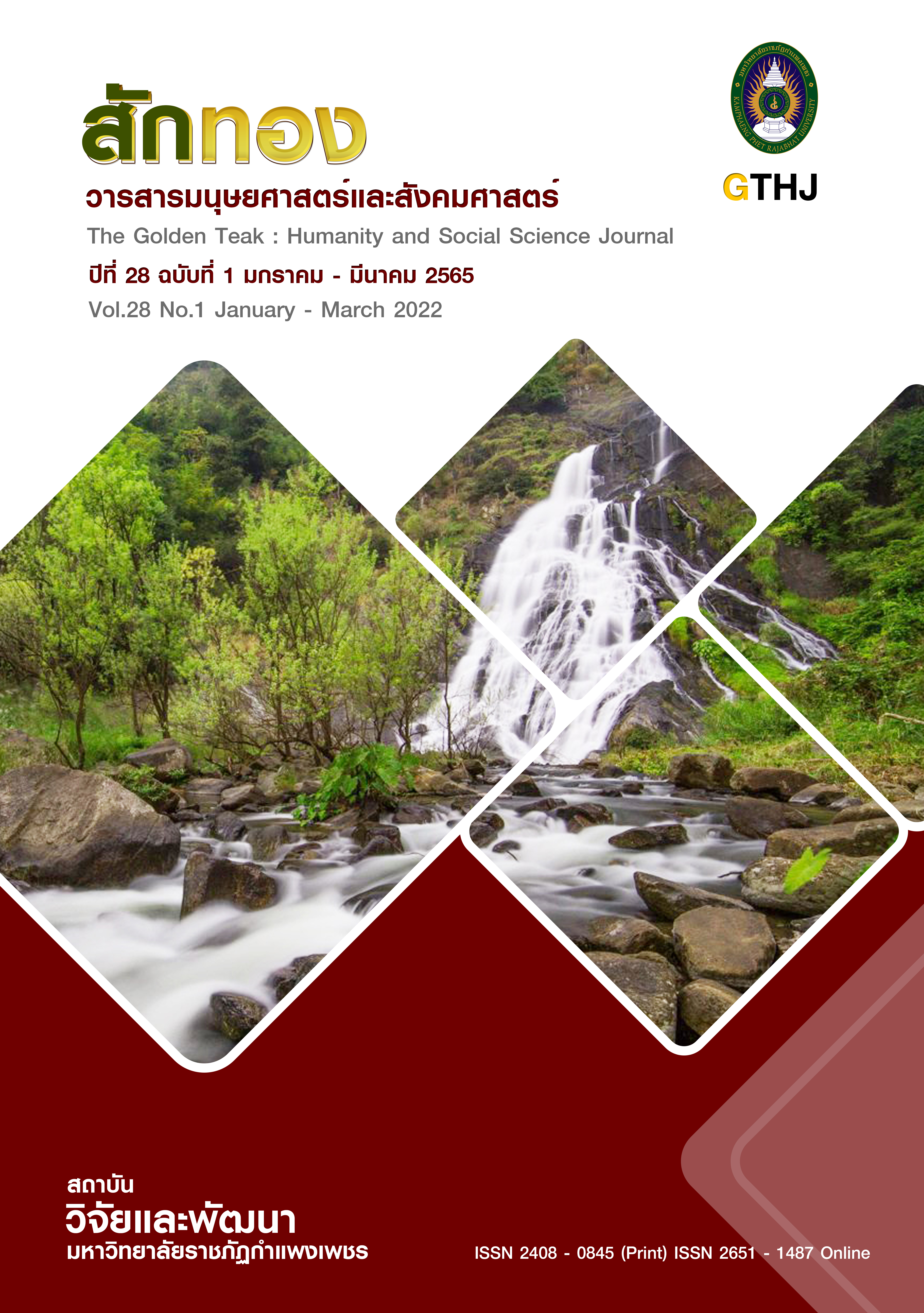The Development of Science Instructional Package for Chemicals in Daily Life Subject according to STEM Education to encourage Science Process Skills of Students in Grade 12
Main Article Content
Abstract
This study aims to: 1. Create and find efficacy of Science Instructional Package for Chemicals in Daily Life Subject according to STEM Education to encourage Science Process Skills of Students in Grade 12 which is effective according to the criteria 80/80 2. Demonstrate Science Instructional Package 2.1 Compare achievement of students’ pre- and post- study school-record that have been taught by Science Instructional Package 2.2 Compare science process skills of students’ pre- and post-study with the science process skills test 3. Study the satisfaction of the students who have studied with Science Instructional Package by using Research and Development Methodology divided into 3 steps as follows 1. Creating and finding efficacy of Science Instructional Package 2. Study result of using Science Instructional Package 3. Study the satisfaction of students who have been taught with Science Instructional Package. The samples for this research are 30 students in grade 12 of Rachanuban School, in Nan Province. The samples were chosen by Cluster Random Sampling method by using classrooms as random unit, then drew lots from all 5 classrooms. The materials that were applied in the research is The Science Instructional Package for Chemicals in Daily Life Subject according to STEM Education, academic achievement test and science process skills test, using all by T-Test Dependent
The research found that
1. Creating and finding efficacy of Science Instructional which were designed by author into 3 sets are: 1. Let’s Get to Know Chemical 2. Properties of Substances in the Solid, Liquid and Gas State 3. Change of Substance. All of these packages have been considered pass for the appropriateness and have an overall average at the highest level and are effective as 82.11/82.09
2. The Comparison of academic achievement and science process skills.
2.1 The students’ post-study school record that studied with Science Instructional Package are higher than the pre-study with statistical significance at the level of .05
2.2 The post-test of students’ science process skills who studied with the Science Instructional Package are higher than the pre-test with statistical significance at the level of .05
3. The students’ satisfaction to the Science Instructional Package for Chemicals in Daily Life Subject according to STEM Education to encourage Science Process Skills of Students in Grade 12 are in the highest level.
Article Details

This work is licensed under a Creative Commons Attribution-NonCommercial-NoDerivatives 4.0 International License.
บทความที่ได้รับการตีพิมพ์เป็นลิขสิทธิ์ของวารสาร สักทอง : วารสารมนุษยศาสตร์และสังคมศาสตร์ สถาบันวิจัยและพัฒนา มหาวิทยาลับราชภัฏกำแพงเพชร
ข้อคิดเห็นใดๆ ที่ปรากฎในวารสารเป็นวรรณกรรมของผู้เขียนโดยเฉพาะ ซึ่งมหาวิทยาลัยราชภัฏกำแพงเพชรและบรรณาธิการไม่จำเป็นต้องเห็นด้วย
References
Baigasuyee, J. (2009). Teaching Material Writing Process. Bangkok : Suweeriyasan Publisher.
Brahmawong, C. (2013). The Performance test of Instructional Package. Silpakorn Educational Research Journal, 5(1), 7-20.
Bybee, R.W. (2013). The Case for STEM Education : Challenges and Opportunities. Arlington : The National Science Teaching Association.
Chanprasert, S. (2014). Active Learning: Learning Management of 21st Century. IPST Magazine, 42(188), 3-6.
Jitaree, A. (2009). The Development of Science Instructional Package Under the Topic of Natural Color Dyed Cotton : Pongkham for Grade 8 Students. Suntisuk School. Nan : Primary Educational Service Area (PESA) 2.
Koocharoenpisal, N., Kwanmueng, R. & Ma-iam, L. (2019). The Development of Science Instructional Package for Improving Water Quality for High School Students according to STEM EDUCATION. Srinakharinwirot Research and Development (Journal of Humanities and Social Sciences), 11(21), 23-38.
Santiphaiboon, J. & Po-ngoen, w. (2018). Learner's Development Activities by STEAM and Productivity Based learning to Enhance the Process Skills and Creative Ability in Third Grade Students. [Online]. Available: https://so02.tci-thaijo.org/index.php/ EDUCU/article/view/148073/109007 [2019, October 24].
Saiyot, L. & Saiyot, A. (2015). Educational research techniques. Bangkok : Suweeriyasan Publisher.
Srisa-ard, B. (2002). The preliminary research. Bangkok : Suweeriyasan Publisher.
_______. (2002). Educational Measurement and Evaluation. Faculty of Education : Srinakharinwirot University, Maha Sarakham.
Thananuwong, R. (2013). The Learning of Global Warming by integrated STEM Education. IPST Magazine, 41(182), 15-20.
Yangnonk, W. (2012). The Result Report of Using the Science Instructional Package, Science Department, Topic : Light energy, Grade 4. Mae Raka School. Phitsanulok : Phitsanulok Primary Educational Service Area (PESA) 2.


